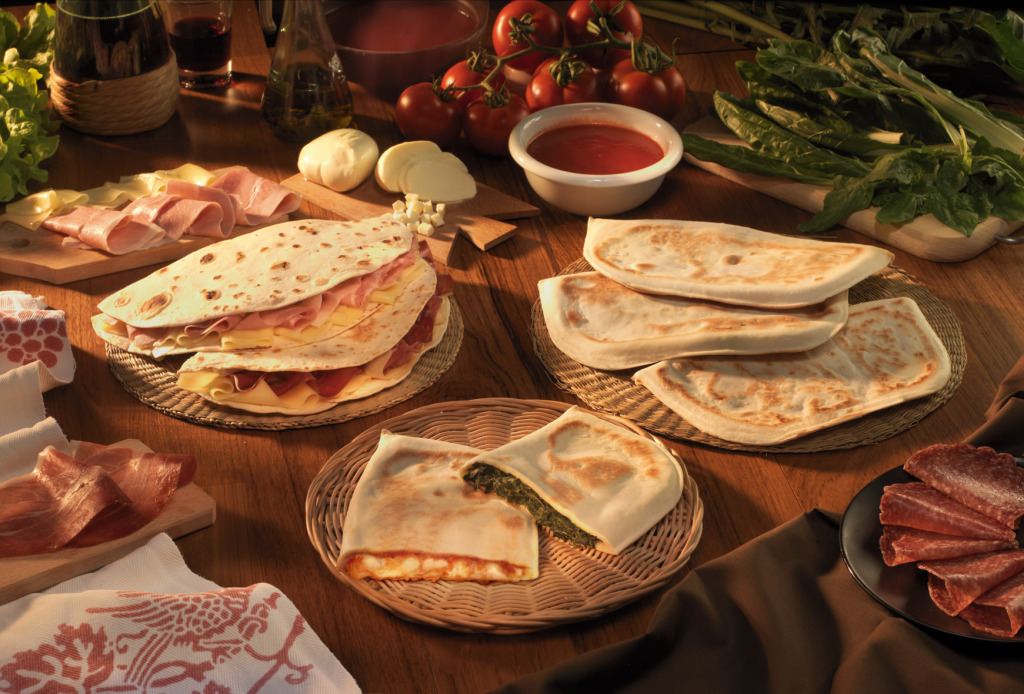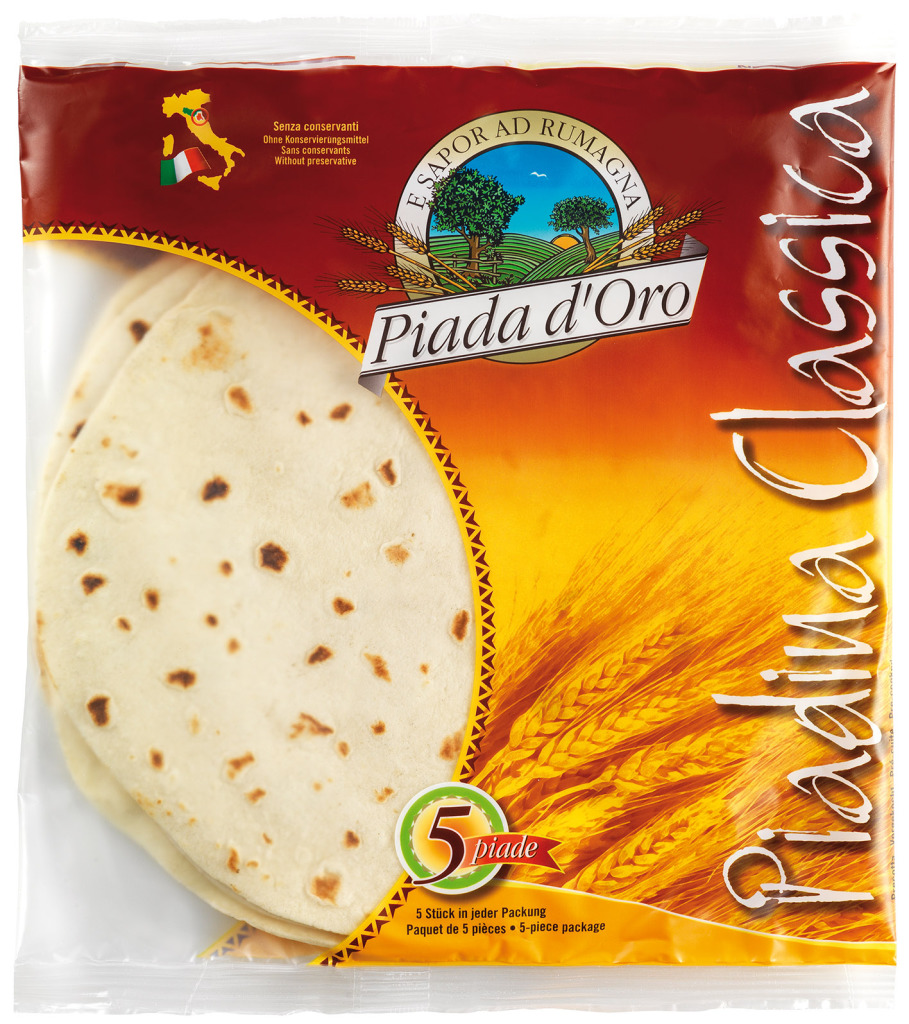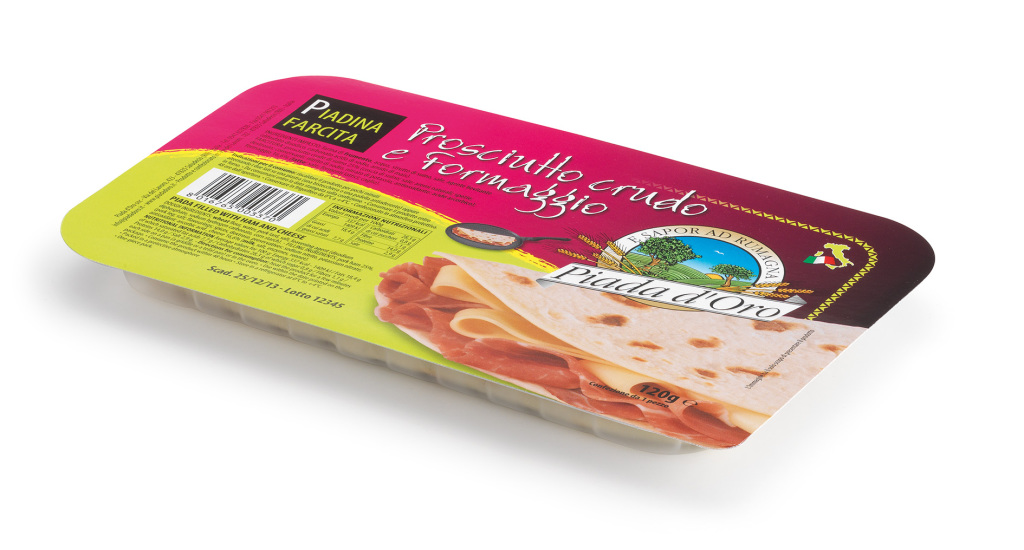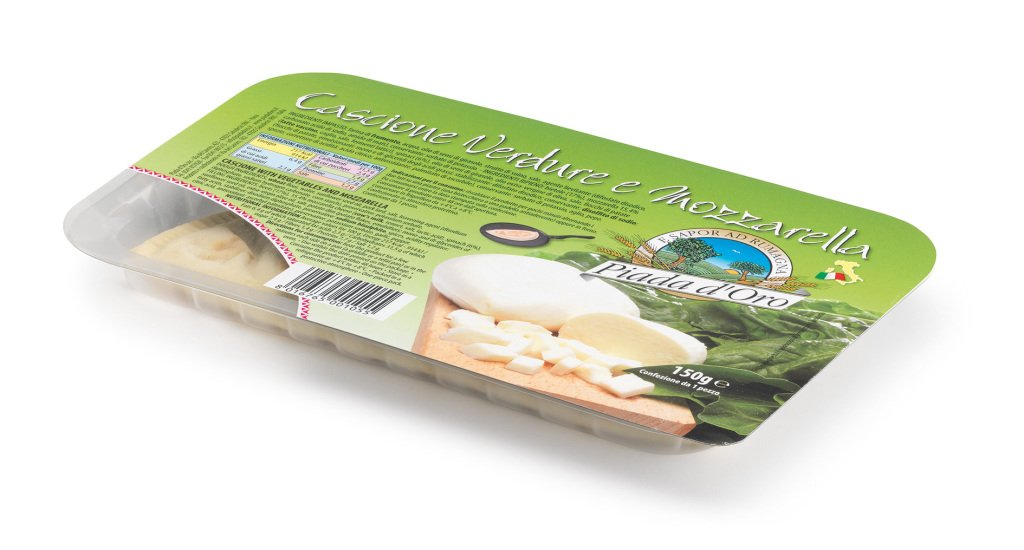 In a small laboratory on the Adriatic Coast, in the mid-nineties, the ‘Piada d’Oro’ was born. It is a company which base all its work on craftsmanship and the respect for both tradition and culture of this land. It aims at transforming the famous ‘piadina’, formerly known as the ‘poor man's bread’, in a daily food on everybody’s table. To date, the Piada d'Oro, situated on the hillside near the municipality of Saludecio (in the province of Rimini), is managed by the two owners Moreno Giulianelli and Maurizio Benzi and can count on 2,700 metres of covered structure, of which 1,900 are dedicated to the production and 800 to logistics. There are two separate production areas: the first one produces exclusively the IGP ‘piadina’ according to the tradition of Rimini, the company's core business, realized for years for private labels; the second area is dedicated to the production of the range of stuffed products: the stuffed ‘Cascione’ of Romagna and the stuffed piadina with filling.
In a small laboratory on the Adriatic Coast, in the mid-nineties, the ‘Piada d’Oro’ was born. It is a company which base all its work on craftsmanship and the respect for both tradition and culture of this land. It aims at transforming the famous ‘piadina’, formerly known as the ‘poor man's bread’, in a daily food on everybody’s table. To date, the Piada d'Oro, situated on the hillside near the municipality of Saludecio (in the province of Rimini), is managed by the two owners Moreno Giulianelli and Maurizio Benzi and can count on 2,700 metres of covered structure, of which 1,900 are dedicated to the production and 800 to logistics. There are two separate production areas: the first one produces exclusively the IGP ‘piadina’ according to the tradition of Rimini, the company's core business, realized for years for private labels; the second area is dedicated to the production of the range of stuffed products: the stuffed ‘Cascione’ of Romagna and the stuffed piadina with filling.
The stuffed Piadina and the Cascione
Both stuffed Piadina and Cascione in the past were prepared in order to take advantage of the various remaining raw materials, such as cheese, bran, and cold cuts, and were cooked with what was available at the time, such as vegetables harvested in the fields. The goodness of the raw materials is combined with the convenience and speed in preparing them.
The filled Piadina, with either cooked or uncooked ham with cheese, are folded as a crescent and open at their sides, on which it is possible to see the filling inside them. If heated, they keep the fragrance of the freshly baked Piadina.
The Cascione, with mozzarella and tomato, mozzarella and vegetables, mushrooms and mozzarella, and 4 cheeses, are closed and have more substantial dough in order to contain moister fillings. Their dough results to be fragrant, when heated, and it is characterized by a skilful balance, thanks to the use of mozzarella: when it melts, it does not combine the different flavours of the fillings.
The total production capacity of the Piada d’Oro is of about 12,000 pieces per day, and they are required by both large-scale retail trade and food service as snack products.
